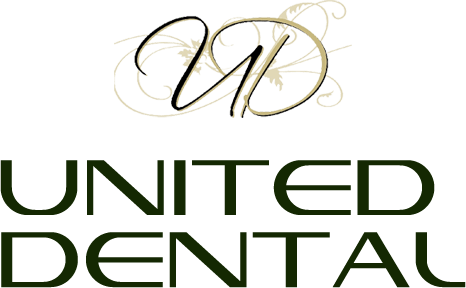You and Dr. Mahzoon may determine that you need a tooth extraction for any number of reasons. Some teeth are extracted because they are severely decayed; others may have advanced periodontal disease, or have broken in a way that cannot be repaired. Other teeth may need removal because they are poorly positioned in the mouth (such as impacted teeth), or in preparation for orthodontic treatment.
The removal of a single tooth can lead to problems related to your chewing ability, problems with your jaw joint, and shifting teeth, which can have a major impact on your dental health.
To avoid these complications, in most cases, Dr. Mahzoon will discuss alternatives to extractions as well replacement of the extracted tooth.
The Extraction Process
At the time of extraction the doctor will need to numb your tooth, jawbone and gums that surround the area with a local anesthetic.
During the extraction process you will feel a lot of pressure. This is from the process of firmly rocking the tooth in order to widen the socket for removal.
You feel the pressure without pain as the anesthetic has numbed the nerves stopping the transference of pain, yet the nerves that transmit pressure are not profoundly affected.
If you do feel pain at any time during the extraction please let us know right away.
Sectioning a tooth
Some teeth require sectioning. This is a very common procedure done when a tooth is so firmly anchored in its socket or the root is curved and the socket can’t expand enough to remove it. The doctor simply cuts the tooth into sections then removes each section one at a time.
After Tooth Extraction
After tooth extraction, its important for a blood clot to form to stop the bleeding and begin the healing process. Bite on a gauze pad for 30-45 minutes immediately after the appointment. If the bleeding or oozing still persists, place another gauze pad and bite firmly for another 30 minutes. You may have to do this several times to staunch the flow of blood.
After the blood clot forms it is important to not disturb or dislodge the clot. Do not rinse vigorously, suck on straws, smoke, drink alcohol or brush teeth next to the extraction site for 72 hours. These activities may dislodge or dissolve the clot and hinder the healing process. Limit vigorous exercise for the next 24 hours, as this increases blood pressure and may cause more bleeding from the extraction site.
After the tooth is extracted you may feel some pain and experience some swelling. An ice pack or an unopened bag of frozen peas or corn applied to the area will keep swelling to a minimum. Take pain medications as prescribed. The swelling usually subsides after 48 hours.
Use pain medication as directed. Call our office if the medication doesn’t seem to be working. If antibiotics are prescribed, continue to take them for the indicated length of time even if signs and symptoms of infection are gone. Drink lots of fluids and eat nutritious, soft food on the day of the extraction. You can eat normally as soon as you are comfortable.
It is important to resume your normal dental routine after 24 hours. This should include brushing and flossing your teeth at least once a day. This will speed healing and help keep your mouth fresh and clean.
After a few days you should feel fine and can resume your normal activities. If you have heavy bleeding, severe pain, continued swelling for 2-3 days, or a reaction to the medication, call our office immediately.
What are the reasons tooth extractions may be necessary?
The number one reason that a tooth extraction would be necessary is that the tooth cannot be saved. It’s not restorable. If we can’t fix the tooth, if we can’t put a crown or do a root canal and save the tooth, then that’s when the tooth needs to come out.
What are some types of tooth extractions?
There’s simple extraction where the whole tooth is still intact and it can just be taken out in one piece. And there’s a surgical extraction, which is when the tooth is going to break and the oral surgeon takes it out piece by piece.
When would a dentist recommend wisdom tooth extractions?
If the wisdom tooth is impacted and causing pain, pressure, or food is getting impacted and causing gum disease around the area and the tissue, then definitely we do recommend extracting wisdom teeth.
When would braces require tooth extraction?
Sometimes if a person getting orthodontic work or braces doesn’t have enough room in their jaw, then the orthodontist would recommend having some bicuspids removed, therefore they can move the teeth much better to alignment and create more space.
Is tooth extraction and filling advisable for young children?
If the tooth is not restorable, then the tooth has to come out or if they need braces, that would definitely be another reason why children may need to have their teeth extracted.
If I have gum disease, when would tooth extraction become necessary?
Gum disease or periodontal disease causes bone loss, so from the gum disease that leads to bone loss and once you have bone loss, there’s no support for the teeth, so those teeth need to come out and get extracted.
Are all tooth extractions considered oral surgery?
Definitely they’re under the category of oral surgery, whether the general dentist does it or you refer out to an oral surgeon.
What is the difference between simple versus surgical tooth removal?
Simple is when the tooth is still intact and that’s just an easier extraction. If it’s really severely decayed or broken down, then it comes out in pieces which is called a surgical extraction.
Where should I go if I need an emergency tooth extraction?
You can always call your general dentist to have the emergency visit. Usually we start with a consultation and if we can do it here, the extraction will be done here. If not, we refer to the oral surgeon nearby.
How long does a tooth extraction procedure take?
It depends on what type of extraction, how many extractions you’re getting done. Usually we schedule about an hour and our oral surgeon does a few extractions during that time.
Will I need dental implants after a tooth extraction?
There’s different ways of replacing a missing tooth. Definitely dental implants have become very popular over the years and we do them routinely in our practice. Other options would be if a patient doesn’t want to get an implant, it would be a bridge or a partial denture.
Will the dentist put me to sleep during tooth extractions?
Sometimes we do some sedation. We don’t do IV sedation in our practice, but we do give them something to just calm them down, a pill that they would take before the procedure. If a patient wants to be put totally to sleep or IV sedation, then we would refer out to a nearby oral surgeon who we work with.
How do I brush my teeth after a tooth extraction?
We typically tell the patients to avoid brushing in that area and to rinse with warm salt water to make sure the area heals faster.
What should I know about tooth extraction after care and recovery?
We go over all these post-op instructions after the surgery with the patients, but we ask that they take their meds, there may be some antibiotics that are prescribed, we make sure that they keep the area clean and rinse after meals so that there’s no food debris getting into the extraction sites.
Why should one avoid rinsing after getting a tooth extraction?
You just don’t want to rinse very aggressively so that the blood clot that’s formed dislodges from that extraction site and that’s what really causes a person to have dry socket. The other reason you would get a dry socket is from smoking, so we tell patients not to smoke at least a few days after their extraction.
How long should I wait to exercise after a tooth extraction?
Exercise is usually okay, maybe the first few days. We ask that you take it easy and just relax, take your meds and just make sure you heal before doing anything too strenuous.
How long should I take to recover from a tooth extraction?
About a few days is what we tell patients. They normally take their antibiotics for one week, pain meds usually just the first few days and then they don’t need pain medication after that.
When should I schedule an appointment for a tooth extraction?
First things first, we always schedule a consultation. You would come in, meet an oral surgeon, they would recommend whatever they think that you need and then we go over financials and make sure that you understand what your financial responsibility will be and then an appointment is set up to come back and get the procedure done.

